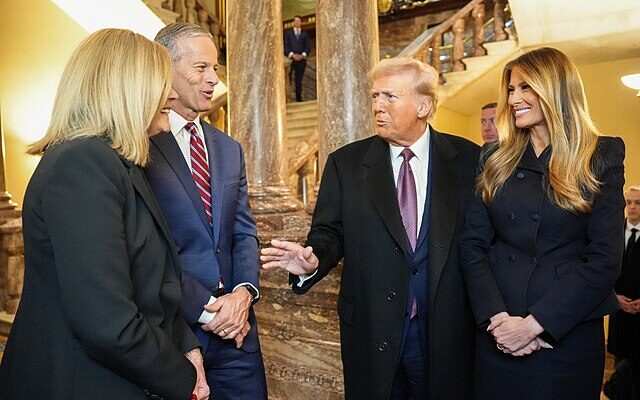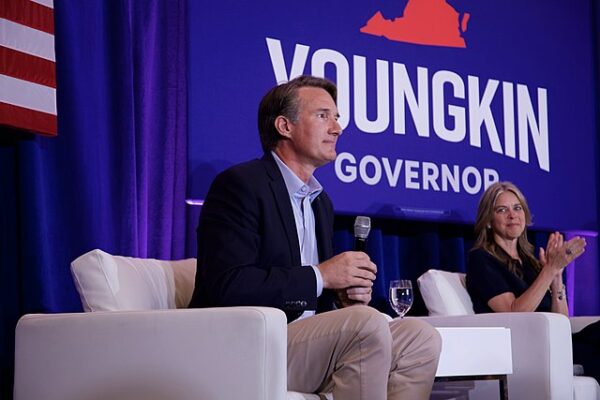
As the government shutdown drags into its second month, leading Republicans in the Senate are pushing back against President Donald Trump’s call to abolish the filibuster—a move that would allow legislation to pass with a simple majority and dramatically reshape the chamber’s balance of power.
Trump’s remarks, posted on Truth Social on October 30, urged Senate Republicans to “get rid of the filibuster” to break the funding stalemate. His comments have widened rifts within the GOP over how to end the shutdown, which has been locked for weeks in disputes over healthcare funding and budget priorities.
House Speaker Mike Johnson, standing beside Agriculture Secretary Brooke Rollins at a Capitol Hill press briefing, made clear that the issue belongs to the upper chamber, explained The Epoch Times. “The filibuster has traditionally been viewed as a very important safeguard. If the shoe was on the other foot, I don’t think our team would like it,” he said. Johnson characterized Trump’s comments as born of exasperation, not policy. “He just desperately wants the government to be reopened,” Johnson explained. “It’s a Senate chamber issue. It is not my call.”
Senate Majority Leader John Thune of South Dakota echoed that sentiment, signaling no intention to change the rules. A spokesperson confirmed that Thune’s “position on the importance of the legislative filibuster is unchanged.” For decades, the 60-vote threshold has acted as a guardrail against majoritarian rule—and remains central to Thune’s vision of the Senate as a deliberative body.
Republicans currently command a simple majority and have gathered enough support to move a temporary funding measure forward, aided by a few crossover votes. But without the supermajority needed to overcome Democratic opposition, the effort remains stalled.
In his online message, Trump argued that maintaining the filibuster could ultimately empower Democrats. “If the Democrats ever came back into power… the Democrats will exercise their rights, and it will be done in the first day they take office,” he wrote. He invoked the past resistance of former Senators Kyrsten Sinema and Joe Manchin—two moderates who once blocked similar efforts under President Biden—to illustrate the shifting politics around Senate procedure.
Utah Sen. John Curtis voiced firm opposition to Trump’s proposal. “The filibuster forces us to find common ground in the Senate. I’m a firm no on eliminating it,” he posted on Twitter. Democratic Sen. Andy Kim of New Jersey likewise said he saw little appetite for change: “I’ve heard from my Republican colleagues that they don’t want to move in that direction.”
The sentiment is shared by other senior Republicans. A spokesperson for Senate Majority Whip John Barrasso reaffirmed his “ongoing backing” of the filibuster, while Sen. James Lankford of Oklahoma told C-SPAN he remained “adamant to be able to protect the filibuster and cloture rules.”
Delaware Democrat Chris Coons, Lankford’s counterpart in the discussion, said the procedural guardrails preserve the Senate’s spirit of compromise. “The thing that distinguishes the Senate is that we are still forced to negotiate and to work together,” Coons said, though he himself once supported limited reforms in 2022 to advance voting rights legislation.
Trump has long viewed the filibuster as an obstacle to decisive leadership, calling for its elimination during his first term. This year, Senate Republicans briefly circumvented it to fast-track several of Trump’s executive appointees, fueling Democratic accusations of hypocrisy.
While House allies such as Georgia Rep. Marjorie Taylor Greene have supported Trump’s call, urging leaders to “stop forcing people to suffer and lead the country,” the Senate remains unmoved. With the shutdown now in its 32nd day, the debate has evolved beyond legislative procedure into a test of institutional identity, asking whether the world’s oldest continuous legislature should prize speed or deliberation.
[Read More: Country Growing Sick Of Democrats]











